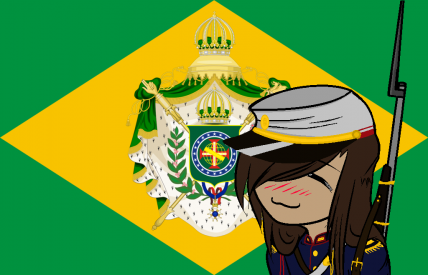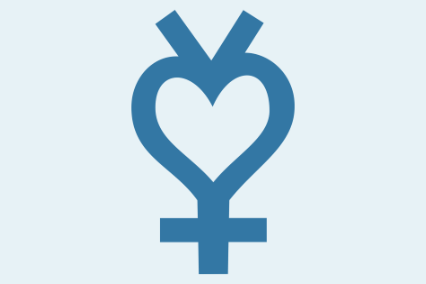

![]() by All are Equal » Tue Mar 17, 2020 1:52 pm
by All are Equal » Tue Mar 17, 2020 1:52 pm

![]() by Rhyleth » Fri Mar 20, 2020 9:32 am
by Rhyleth » Fri Mar 20, 2020 9:32 am

![]() by Nantu » Fri Mar 20, 2020 9:36 am
by Nantu » Fri Mar 20, 2020 9:36 am

![]() by Monsone » Fri Mar 20, 2020 9:41 am
by Monsone » Fri Mar 20, 2020 9:41 am

![]() by Prozitia » Fri Mar 20, 2020 9:43 am
by Prozitia » Fri Mar 20, 2020 9:43 am

![]() by Pax Brasiliana » Fri Mar 20, 2020 9:51 am
by Pax Brasiliana » Fri Mar 20, 2020 9:51 am
Led by a timid Empress and a "tropical Caesar", Pax Brasiliana is a beacon of tradition and aristocratic hope that stands tall in the sea of blood and ruins.
O Pioneiro (March 2024): Headlines - Japanese-Brazilian archeological expedition to the Amazon Rainforest uncovers traces of a "possibly lost" ancient civilization. | Art News - Meet the Neoromantic trend that spawned in Brazil and spread throughout Latin America. | Economy News - "A global recession has already begun", says American specialist following signs of European economic slowdown.

![]() by The Fordines » Fri Mar 20, 2020 10:06 am
by The Fordines » Fri Mar 20, 2020 10:06 am

![]() by Altiqala » Fri Mar 20, 2020 10:36 am
by Altiqala » Fri Mar 20, 2020 10:36 am

![]() by Pulsroth » Fri Mar 20, 2020 5:29 pm
by Pulsroth » Fri Mar 20, 2020 5:29 pm

![]() by The Andromeda Island Group » Fri Mar 20, 2020 6:01 pm
by The Andromeda Island Group » Fri Mar 20, 2020 6:01 pm

![]() by Ivory Coasts » Fri Mar 20, 2020 10:21 pm
by Ivory Coasts » Fri Mar 20, 2020 10:21 pm

![]() by Tdomereov » Sat Mar 21, 2020 2:15 am
by Tdomereov » Sat Mar 21, 2020 2:15 am

![]() by Aikoland » Sat Mar 21, 2020 4:20 am
by Aikoland » Sat Mar 21, 2020 4:20 am

![]() by Sailor Mercury » Sat Mar 21, 2020 7:50 pm
by Sailor Mercury » Sat Mar 21, 2020 7:50 pm

![]() by -The Japanese Democratic Republic- » Mon Mar 23, 2020 8:54 pm
by -The Japanese Democratic Republic- » Mon Mar 23, 2020 8:54 pm

![]() by Jerdena » Mon Mar 23, 2020 10:58 pm
by Jerdena » Mon Mar 23, 2020 10:58 pm

![]() by Zhouran » Tue Mar 24, 2020 4:40 am
by Zhouran » Tue Mar 24, 2020 4:40 am
Western liberal democracies love to virtue-signal about their supposed superiority because they are simply 'more democratic', but in reality these sham democracies are complicit in reinforcing the unjust hierarchies of neoliberal capitalism and the preservation of far-right reactionary politics. These western representative 'democracies' do not represent the interests of the workers but rather they only represent the interests of corporate fatcats, warmongers and lobbyists. They do nothing but create a fake facade in order to trick the masses into voting for them, for the centrist liberals they create the image of progressiveness around themselves despite capitalism being regressive in nature, meanwhile the right-wing conservatives build a facade of nationalism and populism to entice their followers despite capitalism being highly-globalist and created only for the sole benefits of the bourgeoisie.
Thanks to the immortal socialist science of Kaimingism–Jinbuism, the proletarians of Zhouran have the largest amount of workers' autonomy in the world. We have the world's largest number of labor unions, the largest number of self-managed cooperatives, the highest amount of regulation for workers' rights, and even the highest unionization rate in the world with pretty much almost every single Zhouranese worker being a member of a labor union. Not to mention that every labor union in this great nation have the addition of political representation in order to bolster the collective bargaining of workers. Our political system simply works because it was built and tailor-made for this nation, so maybe other nations outside the west should stop utilizing the flimsy bureaucracy of western sham democracies and instead utilize their own political system that benefits the interests of their people rather than foreign elites.
- A representative from the hardline-aligned labor union Halun–Kaidalong Patriotic Revolutionary Workers' Union for Industrial Independence & Workers' Autonomy

![]() by Rafinha » Tue Mar 24, 2020 5:38 am
by Rafinha » Tue Mar 24, 2020 5:38 am

![]() by Borovan entered the region as he » Tue Mar 24, 2020 9:17 pm
by Borovan entered the region as he » Tue Mar 24, 2020 9:17 pm

![]() by Gandoor » Thu Mar 26, 2020 9:12 am
by Gandoor » Thu Mar 26, 2020 9:12 am

![]() by Norway-Swed2 » Fri Nov 26, 2021 6:13 am
by Norway-Swed2 » Fri Nov 26, 2021 6:13 am

![]() by Tangatarehua » Sat Nov 27, 2021 1:24 am
by Tangatarehua » Sat Nov 27, 2021 1:24 am
18 March 2024
News: Popular author Ariki Rawhiti Rakau dies aged 58 | Conservative MP says children should be banned from purchasing alcohol | Unemployment rises while interest rates continue to climb | Weather: Tamaki ☁ 24°C | Whakaara ☀ 16°C | Wharekorana ☀ 17°C | Kaiika ☁ϟ☁ 28°C | Kotiropai ☂⛆ 21°C | Rakipa ☀ 27°C | Kaitohura ☀ 18°C

![]() by Themiclesia » Sat Nov 27, 2021 1:29 am
by Themiclesia » Sat Nov 27, 2021 1:29 am
NS stats not in effect
(except in F7)
Gameside factbooks not canon
Sample military factbook
Nations:
• Themiclesia
• Camia
• Antari
>>>Member of Septentrion, Atlas, Alithea, Tyran<<<Left-of-centre, multiple home countries and native languages, socially and fiscally liberal; he/him/his
Pro: diversity, choice, liberty, democracy, equality | Anti: racism, sexism, nationalism, dictatorship, war
News | Court of Appeal overturns Sgt. Ker conviction for larceny in quartermaster's pantry | TNS Hat runs aground in foreign harbour, hull unhurt | House of Lords passes Stamp Collection Act, counterfeiting used stamps now a crime | New bicycle lanes under the elevated railways | Demonstration against rights abuses in Menghe in Crystal Park, MoD: parade to be postponed for civic activity

![]() by Moresnet Amikejo » Sat Nov 27, 2021 9:12 am
by Moresnet Amikejo » Sat Nov 27, 2021 9:12 am

![]() by Deutschen Kaiserreichs » Sat Nov 27, 2021 9:16 am
by Deutschen Kaiserreichs » Sat Nov 27, 2021 9:16 am
Advertisement
Return to Factbooks and National Information
Users browsing this forum: Greater Kastovia
Advertisement